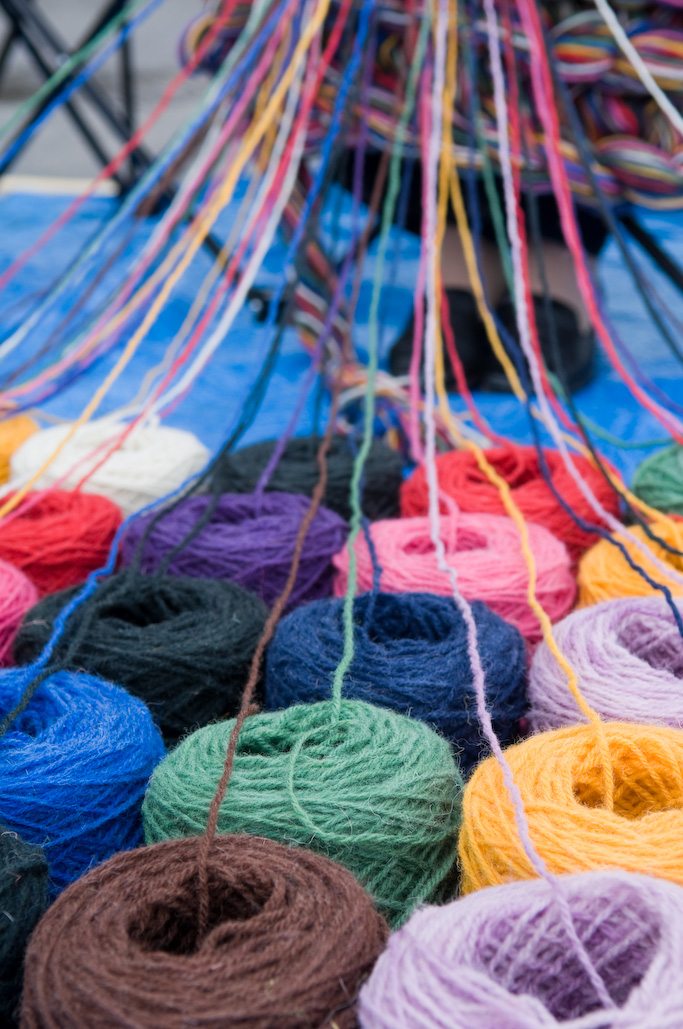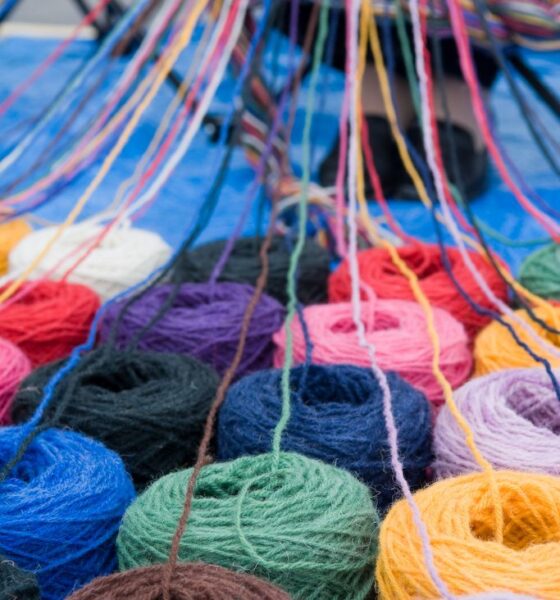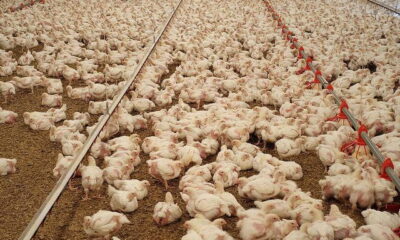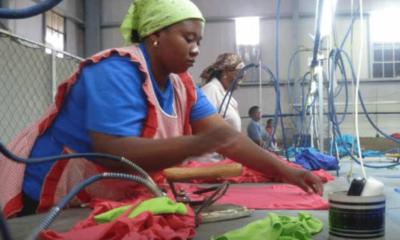

Features
Altering the pattern: Organic Fashion and Textiles Week
London Fashion Week SS15 is around the corner, celebrating an industry that moves so fast we’re already six months ahead. Meanwhile, the Soil Association is asking us to slow down for Organic Fashion and Textiles Week, a dedicated event within the organisation’s Organic September campaign held to coincide with London Fashion Week – but with a greater emphasis on how our clothes are made rather than on their designer label.
The national Organic Fashion and Textiles Week event, held from September 12th to 16th, will feature events, talks, competitions and money-off promotions with a number of fashion brands taking part. The emphasis, like all of Organic September, is how consumers can make a big difference through small changes, such as buying clothes made using organic fibres.
“We’re holding Organic Fashion and Textiles Week to celebrate the amazing work our textiles and fashion licensees do and to raise awareness of the work that goes into making organic clothing and textiles – from growing the cotton right the way through the supply chain to the finished product,” explains Emma Reinhold, trade relations manager at the Soil Association.
The organic cotton trade is a different kettle of fish to the standard route to market; according to Reinhold it gives control to farmers, not GM companies, eliminates hazardous synthetic pesticides, helps farmers feed their families, saves water and combats climate change. So why doesn’t everyone do it?
“Fashion has become faster. Most fashion buyers take a short-term view on everything,” says Safia Minney MBE, CEO of People Tree, one of the brands taking part in Organic Fashion and Textiles Week and the first clothing range to meet the Global Organic Textile Standard certified by the Soil Association.
“Farmers need support for transition from non-organic to organic, which takes about seven years. During the transition the yield can drop.”
Minney always intended to place organic cotton and wool at the heart of People Tree. “When I started 20 years ago I travelled around Zimbabwe and looked at how we could work with smallholder farmers whose cotton was organic as they could not afford any pesticides,” she explains. “However, all the cotton mills were owned by wealthy white industrialists who would not separate the organic cotton with the normal. It was clear that you needed to create a market demand to get them a better price and support sustainable agriculture.”
The environmental and social impacts of organic agriculture go hand in hand. “It protects the planet by sequestering 1.5 tons of CO2 into the soil each year per acre [and] reduces the use of unsustainable resources, like oil, the main ingredient used in fertiliser,” says Minney.
“Instead, organic farmers use natural pesticides made from chilli, neem, garlic and soap to control pests, instead of expensive and harmful chemicals. Using natural pesticides protects both people and the environment from chemicals, reduces the pollution of the water, air and soil, and also saves the farmers up to 3,000 rupees [£30] per acre.”
There are also no allergenic, carcinogenic or toxic chemicals that are passed on to the customers who wear the garments, she adds.
Minney explains that there is a 30% Fair Trade and organic premium paid on People Tree’s cotton, which is used for clean water projects, micro-finance and schools, while the ability to grow crops such as millet, tomatoes and aubergines alongside the cotton provides food and additional income.
Reinhold says she hopes organic textiles will become more mainstream as shoppers continue to demand transparency. “As more consumers become aware of how their clothes are made, we hope they will start questioning the manufacturing process. With more demand for organic cotton, we hope retailers will take notice and change their policies.”
Minney says that the Rana Plaza disaster has made more people think about how their clothes are made and agrees that higher consumer demand for organic fabric will result in greater availability. However, it is fast fashion’s reliance on depleted resources that will drive change.
“We are living beyond our resources. The fast fashion industry is completely unsustainable,” she comments. “With a growing world population, we need to be adding more value by growing organically, by hand-making and hand-crafting textiles and fashion with care. We need to respect our clothes and not treat them as a disposable commodity.
“I think we are moving into a revolution similar to 20 years ago with the slow food movement, bringing more sustainable and producer-friendly practice into the fashion industry.”
This revolution may be happening under our noses: the 2013 Organic Cotton Report from Textile Exchange listed H&M, C&A, Puma, Nike and Decathlon as the world’s top five user of organic cotton by volume. With these big high-street names taking the organic industry more seriously, others may follow.
Ahead of Organic Fashion and Textiles Week, Safia Minney will host ‘Fashioning the Future’ on September 10th with panellists Romy Fraser, founder of Neal’s Yard Remedies and Trill Farm, and Lord Peter Melchett, policy director of the Soil Association.
The Soil Association hopes its Organic Fashion and Textiles Week will raise awareness of organic materials such as wool.
Morwenna Kearns is a freelance writer, online editor and PR and social media manager for businesses and organisations running the sustainability and ethical gamut, from fashion to food to filmmaking. She also works within the visual communications sector. Morwenna can be found tweeting as @morwennakearns, blogging about ethical fashion and beauty at GreenGlitter.co.uk and editing environmental business news at SustainableReview.net.
Photo: Soil Association
Further reading:
London Fashion Week: ‘fashion and sustainable fashion can be one and the same’
Sustainable fashion: an oxymoron?
Greenpeace study finds toxic chemicals in children’s clothes


 Environment12 months ago
Environment12 months agoAre Polymer Banknotes: an Eco-Friendly Trend or a Groundswell?

 Features11 months ago
Features11 months agoEco-Friendly Cryptocurrencies: Sustainable Investment Choices

 Features12 months ago
Features12 months agoEco-Friendly Crypto Traders Must Find the Right Exchange

 Energy11 months ago
Energy11 months agoThe Growing Role of Solar Panels in Ireland’s Energy Future





























